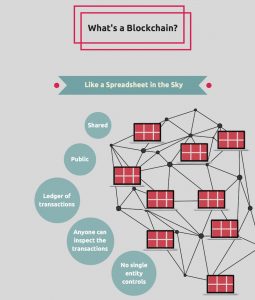American Muslim
Consumers in the Spotlight
Abdalhamid Evans
Muslims in the US are used to coming under the spotlight, but
this time, things are different. With a combined spending power of $170
billion, this diverse community of around 8-9 million spread across the country
is emerging as an attractive, and largely untapped, consumer demographic.
The staging of the first American Muslim Consumer Conference
on 31st October at Rutgers University, Busch Campus Centre,
Piscataway, NJ, will be the first gathering of industry professionals to
examine this potent market sector, and explore its rich potential.
The timing is interesting. In the midst of a recession, with
US manufacturers and marketers desperately looking for new market segments, the
American Muslim consumer market has appeared right on cue.
In their report “Addressing the Muslim Market – can you
afford not to?
[1]
”, A T
Kearney concluded that ‘since Muslims are
the fastest growing consumer segment in the world, any company that is not considering
how to serve them is missing a significant opportunity…”
And while this market is still a bit short on hard data – as
is usually the case with emerging sectors – it is full of indications that
paying attention to the consumer preferences of the Muslim market is likely to
be a good move.
Certainly, watching the movements of the big players is a
good indication of the way a market is maturing. Slow to change, and famously
risk-averse, many multinationals have already got their eye on the global Muslim
consumer market, and are well aware that minority markets, such as in the USA
and Europe, can also bring big rewards.
Reading the Signs
There are many signs confirming the overall growth of this
market.
·
Australia’s Halal meat exports went up by 17% in
2008/09 to $673 million (and this does not include countries that do not
require certification)
·
Primetime ads targeting Muslim consumers
appeared on French TV
·
French retail chain Casino has opened a Halal
product website ‘Wassila’
·
Boots offering Halal baby foods in UK stores
·
Walmart increasing their Halal product offerings
·
Proliferation of Halal-related trade events and
conferences worldwide, including at Germany’s Anuga, the world’s largest food
trade event, which is including a Halal section, and a Halal conference for
2009.
·
Halal products continue to play an increasingly
important role for Nestlé, with 70 of their 400 facilities now Halal-only.
·
Many governments (both Muslim and non-Muslim)
now acknowledge that that Halal can be a potent engine of growth for national
economies.
It is clear that this market is growing and maturing, and
that it is not a fad or fashion that is going to disappear. The consumer
preferences of the world’s nearly 2 billion Muslims are faith-based, and
largely non-negotiable, and the concept of Shariah-compliance as a marketing
strategy has started to take root in the global marketplace.
And it is not just about food and finance. Once you
recognise the Muslim consumers as a specific market segment that also need
houses, education, cars, cell phones and everything else…then why not appeal to
their tastes, just as you might to any other market demographic group?
Talking to the
customer
And yet, marketing to the Muslim consumers still remains
strangely underdeveloped. In fact it is probably fair to say that they have
been largely ignored…until now. The combination of the economic slow-down and
the change of US administration created a noticeably different socio-economic
micro-climate for American Muslims. There is a greater sense of ‘belonging’ and
of being able to play a positive role in the ongoing development of the
country.
And, perhaps especially in America, belonging also means
being recognised as a valuable consumer. JWT’s 2007 study of ‘one of America’s
biggest hidden niche markets’ revealed that the American Muslim consumers
represent “a neglected market
with huge potential for brands that are willing to connect with them.”
The report,
based on face-to-face and telephone interviews, uncovered various important
points about American Muslims attitudes to brands:
·
70% felt that brands play an
important role in their purchasing decisions, compared to 55% for the average
American
·
59% say they make a point of knowing
which brands are popular, compared to a 42% average
·
55% felt that brands make ‘life more
interesting’ compared to a 43% average.
·
71% said they rarely see anyone of
their own faith or ethnicity in advertising
·
73% said they could not think of one
mainstream brand that showed a Muslim in its advertising.
·
77% rated price as important, as
against 91% of the general public, making their brand choice less dependent on
price/value.
All of this
clearly begs the question as to why there is not more advertising aimed at the
clearly responsive and relatively affluent Muslim customer.
And part of
the answer is that even if a corporation wanted to reach this important
consumer segment, they may very well not know how to go about it. What to say,
what not to say, how to say it, or
even how to reach the customers. Because the marketing platforms to reach the
American Muslims are not clearly defined; they are just now emerging.
All of
which makes the prospect of the American Muslim Consumer Conference on 31st
October an extremely interesting one, as it will be as a result of events like
this one that the marketing expertise and platforms serving this market will be
developed and expanded.
Key topics
will cover:
- American
Muslim consumers – understanding who they are, where they are and their
spending patterns. - Where
is the market headed, Case Studies of major driving forces in food and
finance - Selling
to American Muslim Consumers. What and How? - Reaching
the Muslim Consumers – Accessing the right media - Challenges
and the Road Forward
And this is
not just about Halal food. Targeted business sectors include
- Finance/investments/banking/insurance
- Home
and business Financing - Retail
and Consumables - Halal
foods - Clothing
and apparel - Education,
schools, university, online - Tourism
– vacation/entertainment/recreation - Charities
- Technology
Electronics - Media
& Online - Health
and body - Muslim
religious products
There is a compelling line up of speakers and panellists,
and for anyone interested in this market, this is clearly an event not to be
ignored. For more details of the full programme, and registration etc, go to http://www.americanmuslimconsumer.com
I suspect that while the AMCC is the first of its kind, it
may well be the first of many.

:quality(70)/cloudfront-eu-central-1.images.arcpublishing.com/thenational/WC6UPQPLY5ECVKFOCP6WHWV3XU.jpg)

